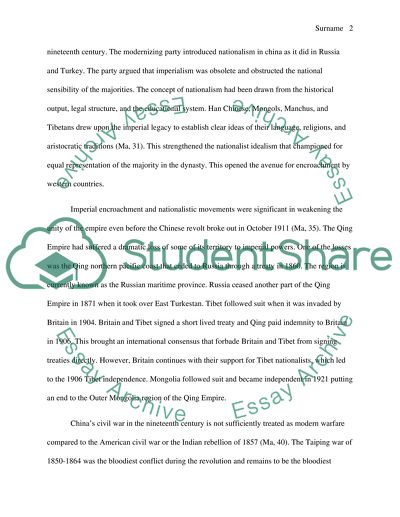Cite this document
(“Fall of late Qing dynasty- challenges from the West Essay”, n.d.)
Fall of late Qing dynasty- challenges from the West Essay. Retrieved from https://studentshare.org/history/1467372-fall-of-late-qing-dynasty-challenges-from-the-west
Fall of late Qing dynasty- challenges from the West Essay. Retrieved from https://studentshare.org/history/1467372-fall-of-late-qing-dynasty-challenges-from-the-west
(Fall of Late Qing Dynasty- Challenges from the West Essay)
Fall of Late Qing Dynasty- Challenges from the West Essay. https://studentshare.org/history/1467372-fall-of-late-qing-dynasty-challenges-from-the-west.
Fall of Late Qing Dynasty- Challenges from the West Essay. https://studentshare.org/history/1467372-fall-of-late-qing-dynasty-challenges-from-the-west.
“Fall of Late Qing Dynasty- Challenges from the West Essay”, n.d. https://studentshare.org/history/1467372-fall-of-late-qing-dynasty-challenges-from-the-west.


